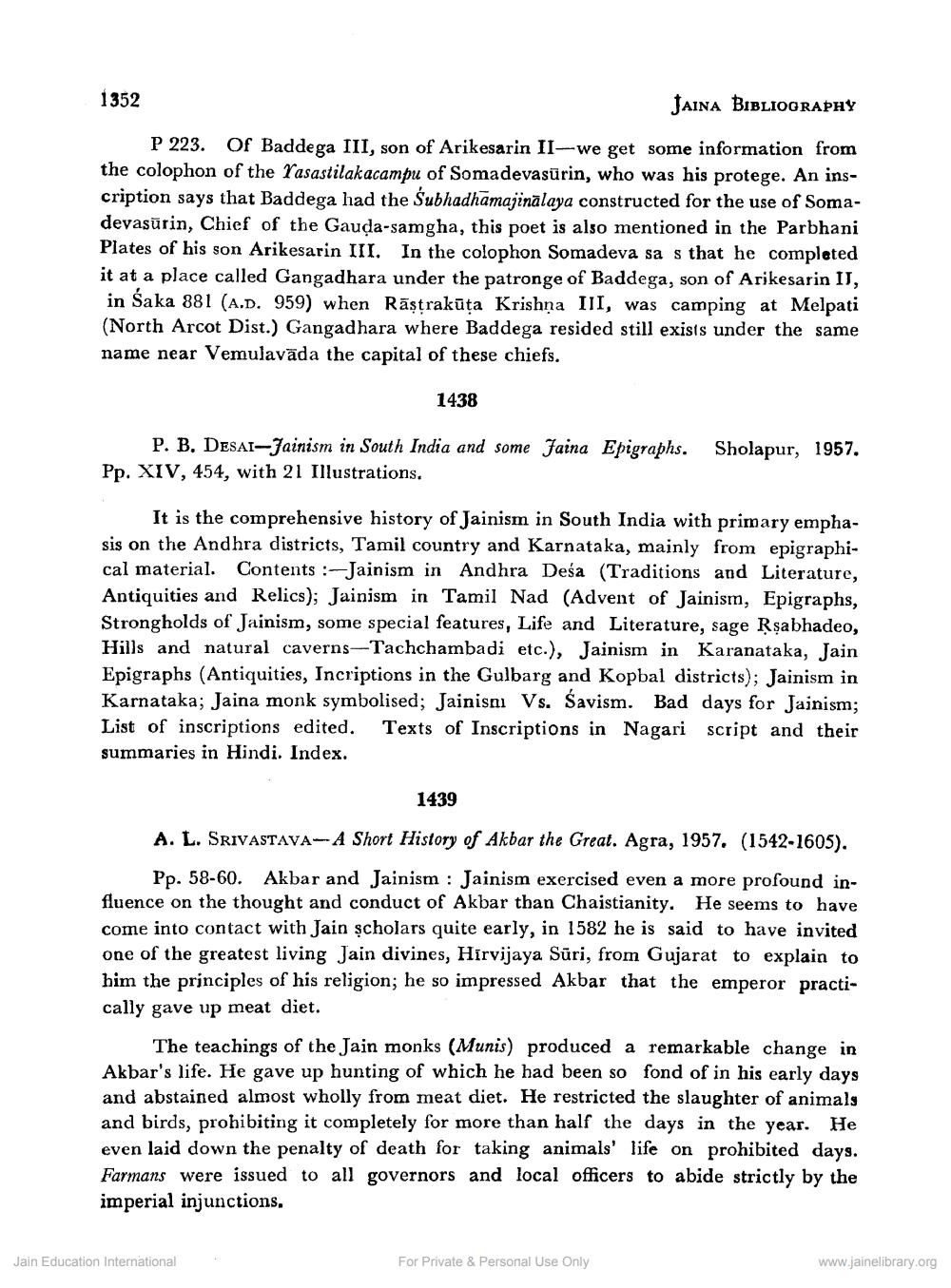________________
1352
JAINA BIBLIOGRAPHY
P 223. Of Baddega III, son of Arikesarin II-we get some information from the colophon of the Yasastilakacampu of Somadevasürin, who was his protege. An inscription says that Baddega had the Subhadhamajinalaya constructed for the use of Somadevasürin, Chief of the Gauda-samgha, this poet is also mentioned in the Parbhani Plates of his son Arikesarin III. In the colophon Somadeva sa s that he completed it at a place called Gangadhara under the patronge of Baddega, son of Arikesarin II, in Saka 881 (A.D. 959) when Räṣṭrakūta Krishna III, was camping at Melpati (North Arcot Dist.) Gangadhara where Baddega resided still exists under the same. name near Vemulavada the capital of these chiefs.
1438
P. B. DESAI-Jainism in South India and some Jaina Epigraphs. Pp. XIV, 454, with 21 Illustrations,
It is the comprehensive history of Jainism in South India with primary emphasis on the Andhra districts, Tamil country and Karnataka, mainly from epigraphical material. Contents:-Jainism in Andhra Deśa (Traditions and Literature, Antiquities and Relics); Jainism in Tamil Nad (Advent of Jainism, Epigraphs, Strongholds of Jainism, some special features, Life and Literature, sage Rṣabhadeo, Hills and natural caverns-Tachchambadi etc.), Jainism in Karanataka, Jain Epigraphs (Antiquities, Incriptions in the Gulbarg and Kopbal districts); Jainism in Karnataka; Jaina monk symbolised; Jainism Vs. Savism. Bad days for Jainism; List of inscriptions edited. Texts of Inscriptions in Nagari script and their summaries in Hindi. Index.
Sholapur, 1957.
1439
A. L. SRIVASTAVA-A Short History of Akbar the Great. Agra, 1957. (1542-1605).
Pp. 58-60. Akbar and Jainism: Jainism exercised even a more profound influence on the thought and conduct of Akbar than Chaistianity. He seems to have come into contact with Jain scholars quite early, in 1582 he is said to have invited one of the greatest living Jain divines, Hirvijaya Süri, from Gujarat to explain to him the principles of his religion; he so impressed Akbar that the emperor practically gave up meat diet.
Jain Education International
The teachings of the Jain monks (Munis) produced a remarkable change in Akbar's life. He gave up hunting of which he had been so fond of in his early days and abstained almost wholly from meat diet. He restricted the slaughter of animals and birds, prohibiting it completely for more than half the days in the year. He even laid down the penalty of death for taking animals' life on prohibited days. Farmans were issued to all governors and local officers to abide strictly by the imperial injunctions.
For Private & Personal Use Only
www.jainelibrary.org




